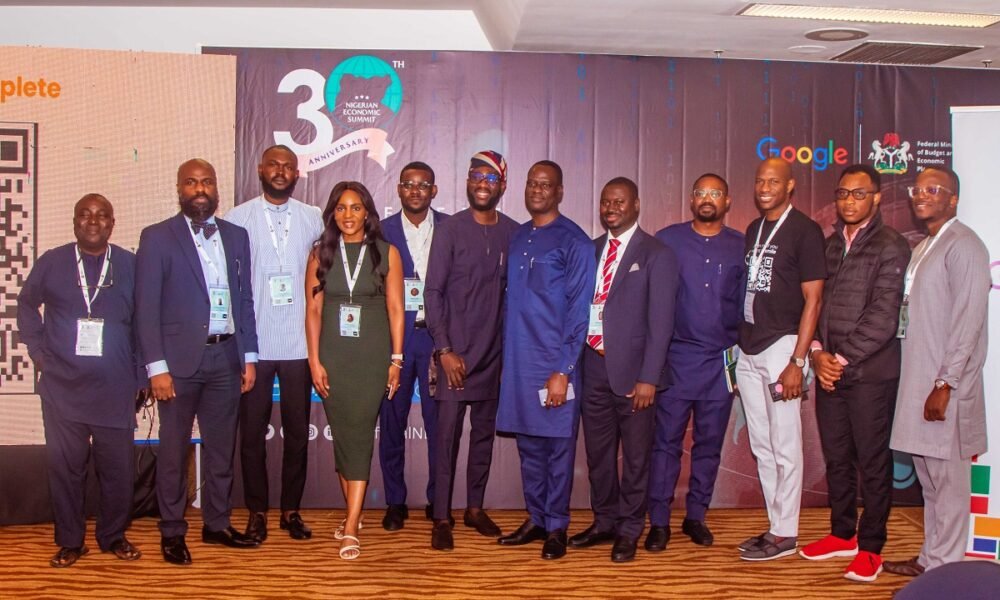The roundtable themed “Leveraging digital solutions to weather economic fluctuations” will feature a dynamic discussion on how digital technologies can help businesses not only survive but thrive amid the nation’s economic challenges. happened.
As Nigeria stands on the threshold of profound economic change, the country faces both complex challenges and enormous opportunities. With a rapidly growing technology sector and a young and dynamic population, Nigeria is poised to become a leader in digital innovation across Africa. Digital transformation is essential to driving economic growth, increasing productivity and improving living standards. Research shows that for every $1 invested in digital technology, $8 is generated in the Nigerian economy, highlighting the immense value of embracing the digital shift.
The roundtable, held on October 16, 2024, included Mr. Taiwo Oyedele, Chairman of the Presidential Committee on Fiscal Policy and Tax Reform, and Laoye Jaiyola, former CEO of the Nigeria Economic Summit Group. Influential figures such as Mr. They emphasized the urgent need for cross-sector cooperation to foster progress.
The discussion began with insights from a CEO survey conducted by Africa Practice, which revealed that 46% of companies are reporting a decline in revenue due to inflation and macroeconomic pressures. But despite these hurdles, 70% of business leaders are actively looking to digital solutions to adapt, innovate, and drive future growth. This widespread adoption of digital tools demonstrates the strong readiness of Nigerian businesses to embrace technology as a force for change.
Financial constraints, inadequate infrastructure and limited access to foreign exchange remain major barriers to implementation. But rather than just outlining the challenges, Roundtable leaders pledged to take action.
Government representatives pledged to accelerate the digitization of public services, improve interagency coordination and address financial barriers to support digital transformation. Meanwhile, Google was committed to exploring local payment solutions through partnerships and making digital tools more accessible to businesses across Nigeria.
Industry leaders emphasized the importance of strengthening the private sector’s role in this transformation, working closely with governments while investing in the development of technology and digital skills to close the talent gap.
Taiwo Oyedele, Chairman of the Presidential Commission on Fiscal Policy and Tax Reform, said: I strongly believe in collaboration. Because the private sector cannot prosper without the cooperation of the public sector. Digital transformation must be mobilized within government as a cornerstone, and by starting this dialogue and continuing the momentum, we can achieve a real shift in the way Nigeria operates with a digital-first mindset. ”
Laoye Jaiyola, former CEO of the Nigeria Economic Summit Group, emphasized that: Over the years, we’ve seen companies get involved briefly, then move on if there’s no immediate solution. Through its Digital Economy Policy Board, NESG provides a platform for the private sector to make meaningful contributions to the advancement of digital solutions. ”
Emphasizing the power of collaboration, Olumide Balogun, Director of West Africa at Google, said: “Technology has the power to transform lives and economies, and we believe that by working together across government, businesses and communities, we can unlock the immense potential of Nigeria’s digital economy for the future. I believe.”
The discussion also explored the potential of artificial intelligence (AI) as a key driver of economic growth. Google reiterated the importance of a responsible and ethical framework for AI adoption that ensures innovation is inclusive and beneficial to all Nigerians.
The roundtable concluded with a shared vision for Nigeria’s digital future. The session declaration, agreed by all participants, outlines a roadmap for the continued growth of the country’s digital economy, reflecting a strong commitment from both the public and private sectors to turn challenges into opportunities.

